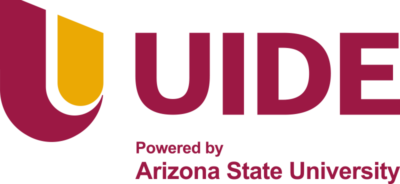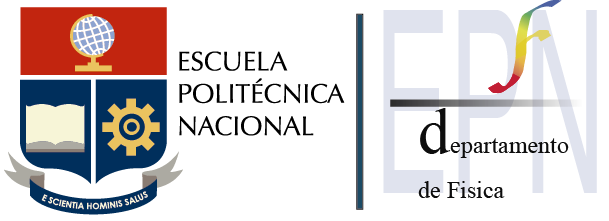- Compact style
- Indico style
- Indico style - inline minutes
- Indico style - numbered
- Indico style - numbered + minutes
- Indico Weeks View
Escuela de Programación para Investigación Científica - EPIC III
→
America/Guayaquil
Yachay Tech
Yachay Tech
Universidad Yachay Tech, Urcuqui, Ecuador
Description
English [Español abajo]:
The "Grupo de Investigadores Latitud Cero," the "Departamento de Física de la Universidad Yachay Tech", the "Universidad Internacional del Ecuador (UIDE)", and the "Departamento de Física de la Escuela Politécnica Nacional," are co-organizing the new series of EPIC (Escuela de Programación para Investigación Científica) summer schools with the support of the ICTP Physics Without Frontiers program.
The third edition of EPIC will focus on introducing techniques for data analysis using Python and Julia as the main tools. The school will be held in person on the campus of Yachay Tech University from August 14th to August 18th. Yachay Tech is located in the beautiful area of Urcuquí, a place renowned for its pleasant weather conditions and its proximity to numerous tourist attractions, such as hot springs, lakes, mountains, and active and inactive volcanoes.
By the end of this workshop, students will gain the ability to perform basic data analysis on unprocessed raw data in order to extract important information about physical systems.
The number of participants is limited to the 20 most motivated students. Preference will be given to students in their last semesters. Scholarships will be provided free of charge to cover accommodation in the students residence of Yachay, few scholarships might include accommodation plus lunches for the most outstanding candidates throughout the duration of the school. Participants (or their universities) are expected to bear the costs of travel from their respective universities to Yachay. However, a few travel grants might be available.
Selected students will have the opportunity to present their own research work during a dedicated session.
Date: From August 14, 2023 to August 18, 2023
Duration: 5 days including 1 preparatory session and 6 tutorial sessions
Format: In person + some presentations in virtual format
Requirements and registration:
- Complete the registration form in Indico.
- A motivation letter (maximum 200 words) to be filled in the registry.
Recommended prerequisites:
- Basic programming experience.
- Basic knowledge of the English language.
Español:
El Grupo de Investigadores Latitud Cero, el Departamento de Física de la Universidad Yachay Tech, la Universidad Internacional del Ecuador (UIDE) y el Departamento de Física de la Escuela Politécnica Nacional con el apoyo del programa "Physics Without Frontiers" del ICTP, tienen el placer de presentar la escuela de verano EPIC (Escuela de Programación para Investigación Científica). La escuela se llevará a cabo de forma presencial del 14 al 18 de agosto de 2023 en el campus de Yachay Tech. Yachay Tech is located in the beautiful area of Urcuquí, a place renowned for its pleasant weather conditions and its proximity to numerous tourist attractions, such as hot springs, lakes, mountains, and active and inactive volcanoes.
La tercera edición de EPIC se centrará en la introducción de técnicas para el análisis de datos utilizando Python y Julia como herramientas principales. Al finalizar este taller, los estudiantes podrán realizar análisis básicos de datos sin procesar para extraer información importante sobre sistemas físicos.
El número de participantes está limitado a los 20 estudiantes más motivados. Se dará preferencia a los estudiantes de los últimos semestres. Se pueden proporcionar becas para cubrir el alojamiento en la residencia universitaria de estudiantes de Yachay, unas pocas becas podrían incluir alojamiento + almuerzos durante la duración de la escuela a los candidatos más destacados. Se espera que el participante (o su universidad) asuma los costos de viaje desde su universidad hasta Yachay. Sin embargo, algunas becas de viaje podrían estar disponibles.
Los estudiantes seleccionados de los últimos años tendrán la oportunidad (opcional) de presentar su propio trabajo de investigación durante una sesión dedicada.
Fecha: Del 14 de agosto de 2023 al 18 de agosto de 2023
Formato: En presencial en el campus de Yachay Tech
Duración: 5 días que incluyen 1 sesión preparatoria y 6 sesiones a modo de tutoriales
Certificado: En formato digital pdf
La emisión de un certificado dependerá de la entrega de un código al final de la Escuela.
Requisitos y registro:
Completar la hoja de registro en Indico.
Una carta de motivación (máximo 200 palabras) que debe ser llenada durante el registro.
Pre-requisitos recomendados:
Experiencia básica en programación.
Conocimiento básico del idioma inglés.
Organizadores:




